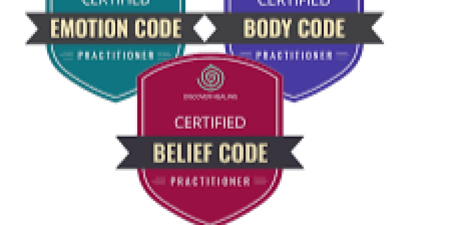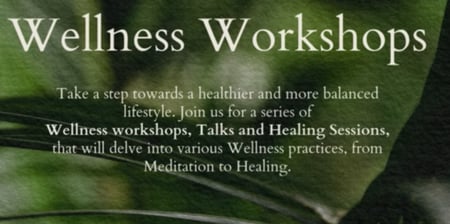Ayurveda
Ayurvedic practitioners near you
How can Ayurveda nourish you?
Ayurveda is a holistic system of medicine developed in ancient India, generally agreed to be one of the oldest forms of organised healthcare[1] in the world. There are varying views among authorities regarding when the system was developed, as Ayurveda is believed to have been practised prior to the existence of written records. The earliest documentation of Ayurvedic medicine is estimated to have been written between about 1200 - 900BCE[2]. The word ‘ayur’ is usually translated as ‘life span’, while ‘veda’ means ‘knowledge’ or ‘science’, so Ayurveda can be interpreted as ‘the science of life, vitality and longevity’[3].
A major focus of Ayurvedic medicine is to promote harmony and wholeness by restoring balance and connection between the body, mind and spirit[4]. Ayurveda recognises five elements: earth, air, fire, water and space (or ether). These elements combine in different ways to form three types of life energy[5], or bodily intelligence, called ‘doshas’. In Ayurvedic tradition, it is believed that one (or sometimes two) of the doshas may be more dominant[6] in a person, influencing all aspects of their health and personality.
The primary goal of Ayurveda is to support optimal health and take a preventative approach[7] to correct any imbalances before they manifest as illnesses requiring treatment. Many practitioners emphasise that this requires the adoption of daily habits and long-term lifestyle changes[8], including meditation and yoga, a diet specific to your individual constitution, massage and possibly herbal remedies.
Benefits of Ayurveda
As a key component of Ayurvedic tradition, yoga has been extensively studied and may offer a range of health benefits, ranging from reducing stress[9] and controlling blood pressure[10], to supporting reproductive health[11]. Research suggests Ayurvedic massage may provide short-term relief from chronic lower-back pain[12]. The results of one study also indicate that Ayurvedic massage may beneficially support the recovery of people who have suffered a stroke[13].
The results of a systematic review suggest some Ayurvedic herbal preparations may be beneficial[14] in the treatment of osteoarthritis. There is evidence to indicate an extract from medicinal plant used in Ayurvedic remedies (Withania somnifera) may slow the development of breast cancer[15]. An extract of another Ayurvedic medicinal herb, Commiphora mukul, may be an effective treatment for prostate cancer[16].
Ayurvedic medicines have been studied for their potential anti-inflammatory effects and their possible benefits in preventing chronic diseases[17]. The results of a case series suggest Ayurvedic oil-dripping treatment (Shirodhara) may be an effective treatment for insomnia[18], but further research is recommended. There is also evidence to suggest that Shirodhara in combination with yoga nidra (a type of Ayurvedic guided relaxation) may reduce blood pressure[19] in people suffering from hypertension.
What to expect from an Ayurveda session
During your first Ayurvedic consultation, you will be asked about your medical history, habits and lifestyle, and any health concerns you might have. Next, your Ayurvedic practitioner will identify your individual constitution, or ‘prakriti’, by analysing your pulse, as well as examining your tongue and skin[20]. These diagnostic methods will allow your practitioner to make detailed recommendations about what you should eat and what daily habits you should practise in order to ensure optimal health and resistance to disease. Your practitioner will often advise breathing exercises, meditation and yoga[21], and possibly also prescribe herbal medication.
You may also be offered services such as Ayurvedic massage, as well as Shirodhara[22], a technique that involves having oil or other liquids gently poured over your forehead. One aspect of traditional Ayurvedic treatment is a collection of cleansing and detoxifying practices called ‘panchakarma’.
Always buy Ayurvedic remedies from reputable Australian suppliers, whose products are required to meet the standards of the Therapeutic Goods Administration (TGA)[23]. Purchasing herbal remedies online may be dangerous as there is no guarantee of their quality, and hazardous levels of impurities[24] have been found in some imported products. Medications of the ‘rasa shastra’ variety may be particularly risky, due to the deliberate inclusion of metals in their formulations, sometimes at toxic levels[25].
As with any exercise or wellness program, please consult your medical professional before commencing Ayurvedic treatment. Always ask your medical practitioner about any traditional remedies you might have been prescribed, particularly if you are already taking conventional medication, due to the potential risk of harmful interactions. If you have an injury or other health issue, or any concerns at all, speak to your Ayurveda practitioner, who will be happy to address these and personalise the session to your individual requirements.
References
1. Ayurvedic Medicine. Australian Traditional-Medicine Society; 2024.
2. What is Ayurveda? Australiasian Association of Ayurveda; 2024.
3. What is Ayurveda? Maharishi Ayurveda; 2015.
4. Using whole medical systems. Cancer Council NSW; [cited on 2024 Dec 4].
5. What is Ayurveda? WebMD; 2023.
6. What Dosha (Body Type) Are You? AYURVEDIC WELLNESS CENTRE; 2023.
7. What is Ayurveda? Vibrant Ayurveda; [cited on 2024 Dec 4].
8. What is Ayurveda? Amanda Wellness; [cited on 2024 Dec 4].
9. Riley KE, Park CL. How does yoga reduce stress? A systematic review of mechanisms of change and guide to future inquiry Health Psychol Rev; 2015.
10. Tyagi A, Cohen M. Yoga and hypertension: a systematic review. Altern Ther Health Med; 2014.
11. Reproductive Health. Yoga Alliance; 2024.
12. Kumar S, Rampp T, Kessler C, Jeitler M, Dobos GJ, Lüdtke R, et al. Effectiveness of Ayurvedic Massage (Sahacharadi Taila) in Patients with Chronic Low Back Pain: A Randomized Controlled Trial. The Journal of Alternative and Complementary Medicine; 2016.
13. Sankaran R, Kamath R, Nambiar V, Kumar A. A prospective study on the effects of Ayurvedic massage in post-stroke patients. Journal of Ayurveda and Integrative Medicine; 2018.
14. Ayurvedic interventions for osteoarthritis: a systematic review and meta-analysis. Springer Nature; 2014.
15. Stan SD, Zeng Y, Singh SV. Ayurvedic medicine constituent withaferin A causes G2 and M phase cell cycle arrest in human breast cancer cells. Nutrition and Cancer; 2008.
16. Xiao D, Zeng Y, Prakash L, Badmaev V, Majeed M, Singh SV. Reactive Oxygen Species-Dependent Apoptosis by Gugulipid Extract of Ayurvedic Medicine Plant Commiphora mukul in Human Prostate Cancer Cells Is Regulated by c-Jun N-Terminal Kinase. Molecular Pharmacology; 2010.
17. Aggarwal BB, Prasad S, Reuter S, Kannappan R, Yadav VR, Park B, et al. dentification of Novel Anti-inflammatory Agents from Ayurvedic Medicine for Prevention of Chronic Diseases: “Reverse Pharmacology” and “Bedside to Bench” Approach. Current Drug Targets; 2011.
18. Vinjamury SP, Vinjamury M, Martirosian CD, Miller J. Ayurvedic therapy (Shirodhara) for Insomnia: A Case Series. Global Advances in Health and Medicine; 2014.
19. Role of Yoga-nidra and Shirodhara on Hypertensive Patients. Semantic. Scholar; 2015.
20. Ayurvedic Consultations. Lakshmi Ayurveda; 2024.
21. Consultations. Living Ayurveda; 2023.
22. What To Expect During Your First Ayurvedic Massage. Ayuherbs Ayurveda; [cited on 2024 Dec 4].
23. Ayurvedic medicines. Commonwealth of Australia; 2005.
24. Special considerations – herbs and rasa shastra medicines. Better Health Channel; 2024.
25. Ayurvedic Medicines Contaminated. Medica; [cited on 2024 Dec 4].
Frequently asked questions
Ayurvedic practitioners near you
Related articles
Categories
Browse Ayurvedic practitioners by locations
Explore Ayurvedic practitioners within Australia
Explore Ayurvedic practitioners within Brazil
Explore Ayurvedic practitioners within Ghana
Explore Ayurvedic practitioners within United States
Browse Ayurveda consultations by locations
Explore Ayurvedic practitioners within Australia
Explore Ayurvedic practitioners within Brazil
Explore Ayurvedic practitioners within Ghana
Explore Ayurvedic practitioners within United States












